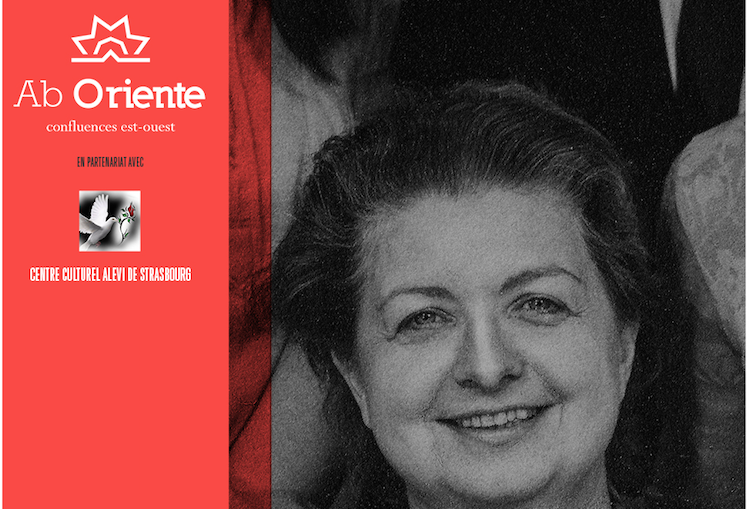Who is Irene Melikoff, a world-renowned Turkologist who sympathizes with Eastern culture?
According to his own statement, “she realized that the second understanding of Islam besides Sunni Islam was secretly living in Turkey.” This got her very excited. The desire to get to know these groups closely had kept her very busy.

Melikoff was born to an Azerbaijani father and a Russian ballerina mother on November 7, 1917, in Petrograd (St. Petersburg) on the night of the Soviet revolution. As a result of the confiscation of her properties after the revolution, she first settled in Finland, then in England for a short time, and finally in France. Melikoff, who grew up with English and French cultures, got to know the eastern culture thanks to her father.
Melikoff, who was still a child when Ömer Hayyâm read the Qur'an and Hafiz's Divan, experienced her love of the Caucasus and the East at this early age. She studied English at the Sorbonne and Eastern languages at the Ecole Nationale des Langues Orientales. The names she studied with constituted the most special group of people in the world of Turkology: Andreas Tietze from Austria, Louis Bazin from France, and Bernard Lewis from England…
The most important teachers of Irene Melikoff during this period were Cahen, Adnan Adıvar, and J. Deny. Melikoff frequently emphasized that the name Adıvar has a special place in her life. The people with whom she was educated stated that they learned a lot from Adnan Adıvar, who was in exile at that time, that it was impossible not to be affected by her knowledge, and that they even listened to Faust from Goethe. Another famous teacher was Jean Deny, who wrote Turkish grammar. Returning to Turkey after Atatürk's death in 1928, through the Adıvar family, she met Faruk Sayar, the son of Mathematician Salih Zeki, and married in 1940. After Melikoff took office in the American girls' college, they lived in İzmir, Mersin, Istanbul, and Ankara due to the duty of her husband. It was 1948 when Irene Melikoff, who returned to France after these long years, which she told that it was difficult for her, went to complete her unfinished education in the Department of Persian at the Ecole Nationale des Langues Orientales.
Meanwhile, her work on Düsturname-i Enverî became her first book: Le Destan d'Umur- Pacha (Paris 1954)
Düstur-nâme-i Enverî was published by M. Halil Yinanç in 1928 with its very interesting story and was evaluated by Melikoff by making comparisons with the information in Byzantium and other sources. This work was a turning point in her life, and she was assigned to the National Research Center. Melikoff, who started her doctoral studies right after, chose Danişmendname, one of the most special epics of the Turkish world, for herself this time. Her doctorate degree in 1957 was later published as La Geste de Melik Danişmend-etude critique du Danişmendname (Paris 1960).
Melikoff, who started to work at the University of Strasbourg in 1968, continued to work in the field of Turcology until her retirement in 1986.
In 1962, Abu Muslim, La “Porte-Hache” du Khorassan dans la tradition epique turcoiranienne (1962 Paris) was published.
This second study by Melikoff covered the epic narrative of Abu Muslim and his circle, who started the Abbasid Revolution in the Khorasan region by unfurling the black banner and destroying the Umayyads.
She was appointed as the director of Strasbourg Turkish Studies Institute in 1968. In the same year, she translated Alessio Bombaci's History of Turkish Literature into French, and from this year she focused on Turkish Folk Islam and Alevi-Bektashi studies, which she would dedicate the rest of her life, and created a rich series of publications on this subject.
Irene Melikoff spent more than thirty years devoting time to Alevi-Bektashi studies. She participated in scientific travels, research, copyright activities, congresses, and symposiums.
According to the Islamic calendar, Melikoff passed away at the age of 91 on 11 Muharram 1430, the day after Hussein's martyrdom; will always be remembered fondly.
